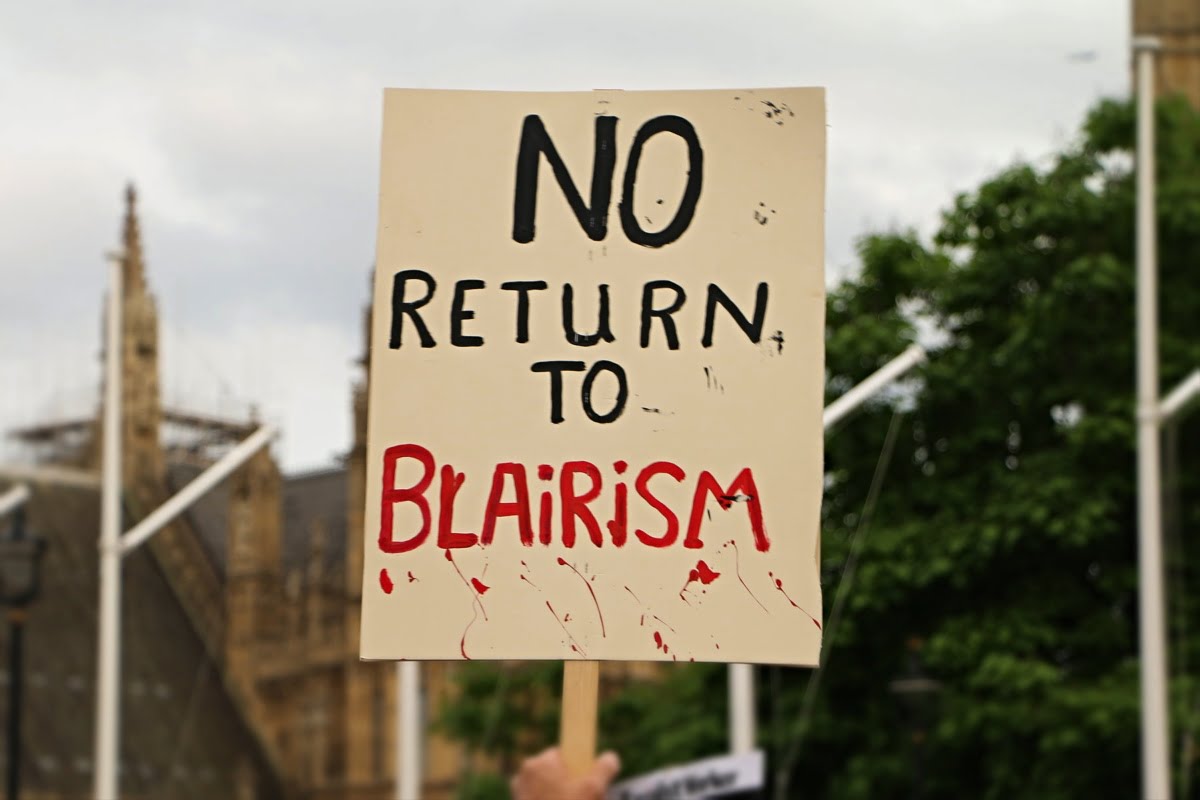Recent in-depth polling by Lord Ashcroft hints at why Labour have lost support amongst working-class voters in former ‘heartlands’. To win back these workers, Labour must become the real anti-establishment party.
Lord Ashcroft recently released an in-depth analysis of statistics and surveys looking at why millions of voters abandoned Labour in the last election. The Labour right wing will undoubtedly attempt to use the results to claim there is an appetite for a return to the centre ground. But such a conclusion is deeply flawed.
People vs Parliament
 First and foremost, the results of Ashcroft’s focus groups indicate a deep distrust of ‘politicians’ and the establishment. This year, it was directed at the Labour Party, and others in Westminster who were seen as blocking Brexit. But this double-edged sword will cut the Conservatives just as deep in the future.
First and foremost, the results of Ashcroft’s focus groups indicate a deep distrust of ‘politicians’ and the establishment. This year, it was directed at the Labour Party, and others in Westminster who were seen as blocking Brexit. But this double-edged sword will cut the Conservatives just as deep in the future.
During the elections, Boris Johnson was able to present himself as the anti-establishment candidate, posing as the champion of ‘the people’ vs Parliament. As one former Labour voter said, “Boris feels more like a real person than a politician”.
This was exacerbated by Labour’s stance on Brexit, which many workers saw as a kick in the teeth; a return to the condescending, elitist “let the adults talk now” politics typified by Blair and New Labour in the past.
Boris made a lot of big promises in order to appeal to disillusioned workers and win the election. But as the Tories continue their programme of austerity, he will be exposed for being just as ‘establishment’ as the rest.
Labour must not return to the ‘centre’, but must become the real anti-establishment party, fighting for bold socialist policies.
Council cuts
This lack of faith in the Labour Party was compounded by the actions of Labour councils, which have been carrying out cuts for years. “In Conservative-led councils, the roads are better, the schools are better,” exclaimed one surveyed ex-Labour voter. “Labour councils are so run down it’s unbelievable.”
It is true that the Tories have ‘fought dirty’ by passing harsher cuts on to Labour councils. But Labour should have led a fightback at every level. Instead, workers were faced with the contradiction of a Labour leadership promising to end austerity, yet Labour councillors implementing cuts in working-class communities.
This undermined belief in Corbyn’s radical promises. If the Labour Party wants to win back these areas, Labour councils must stand up and organise a militant fightback against austerity.
In many cases, this will mean setting illegal budgets. If the Tories suspend democratically-elected councillors for taking a no-cuts stance, Labour should link up with the trade unions and local community groups to launch a mass campaign of united action against imposed austerity. This would be the best way to convince workers that Labour means what it says.
New Labour neglect
The hypocrisy of the careerists in the PLP also left a mark in this election. “I was born and bred Labour; they were for the working man,” stated another attendee of Ashcroft’s focus groups. “But now they’re all bloody millionaires, loads of them have got three or four houses. They’re hypocrites.”
How can we expect workers to trust a party that counts millionaires amongst its elected representatives? It is obvious to workers that such MPs are nothing but stooges for big business and the establishment. And what’s worse, they’re only in it to build up their own careers and personal fortunes.
Moreover, many right-wing Labour MPs – especially in the so-called ‘Red Wall’ areas – treated these seats as their personal fiefdoms, doing nothing to improve the lives of their constituents. The loss of Scotland in the 2015 election, in this respect, should have been a stark warning to Labour. But these lessons were not learnt, and so many more ‘heartlands’ were later lost also.
Socialist fightback
 Finally, on the surface, the members of Ashcroft’s focus groups seemed to criticise Labour’s programme for being too left-wing. “Be less communist!”, one former Labour voter said.
Finally, on the surface, the members of Ashcroft’s focus groups seemed to criticise Labour’s programme for being too left-wing. “Be less communist!”, one former Labour voter said.
The fact is, however, that voters were rightly concerned about how Labour would pay for their promises. “What he promised was just impossible. The billions of pounds they were promising for this, that and the other…It was pie in the sky. People are not daft”.
Indeed, workers are not blind. They can see the limits of a ‘tax the rich’ strategy. They can see that – since the 2008 slump – the cupboard is bare; that there are no longer any scraps to go around.
Of course the money is there – in the bosses’ hands. But a Labour government would not be able to get such money by begging and borrowing from the capitalists. The super-rich would refuse to pay.
Instead, in order to implement its promises, Labour would have to expropriate this wealth by nationalising the banks and big businesses, as part of a socialist economic plan. Without explaining this, many workers rightly saw the manifesto as a list of toothless pledges.
In order to fight Johnson and the Tories, Labour must not return to the status quo. Instead, we need a bold socialist alternative. The labour movement must organise a mass fightback against the cuts. This is the way to prove in practice that Labour is the party of the working class.






